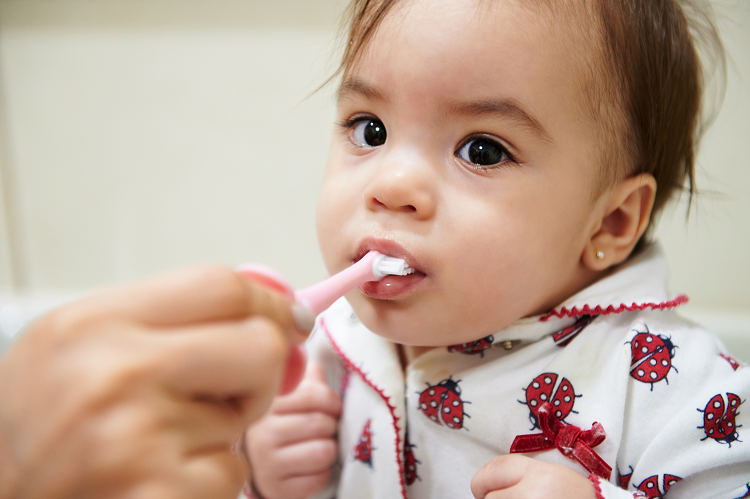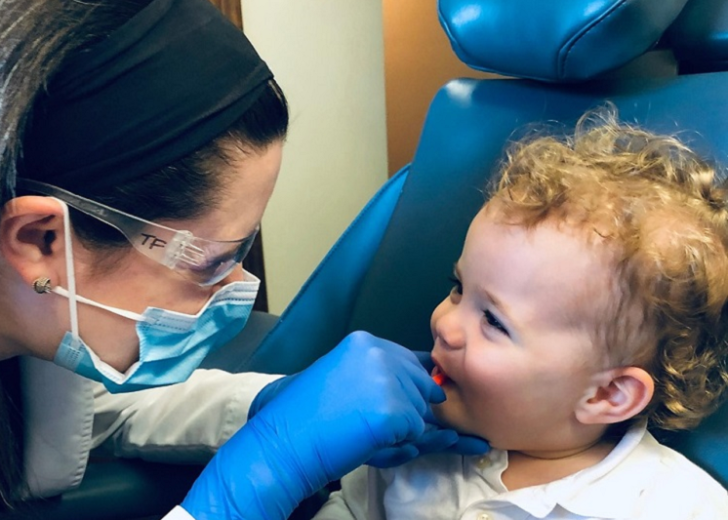
Why Are Baby Teeth So Important?
Article by Dr. Kelly Lewis, DDS, Board Certified Pediatric Dentist and owner of Terrific Teeth Pediatric Dentistry in Robinson
“Why should we worry so much about baby teeth?” is a question I get often as a pediatric dentist, and it is is a legitimate question! (Side note, when I told my husband I was accepted to pediatric dental residency, he said: “What, pediatric dentistry – why worry about baby teeth – they’re going to fall out anyway!?!”) .
Aesthetically, your baby’s smile is a beautiful sight to behold and it will bring you such joy! You will document it from the very beginning with pictures and video that you share with both family and friends. You will watch that charming smile change over the years from the first tooth that erupts to the full toothy grin. Caring for your child’s teeth properly serves two purposes: it protects that wonderful smile and it helps instill a lifetime of good oral habits which in turn will help preserve your child’s baby teeth.
Baby teeth are of extreme importance and serve many functions. These teeth are the beginning of the entire gastrointestinal system. They enable your child to chew food properly, aid in the growth and development of the jaw, and support speech development. Most children have twenty tiny teeth erupt, typically between 6 months to 33 months of age. These primary or baby teeth hold the space for the permanent teeth that follow. Most people have 32 permanent teeth, 28 of which erupt between six to thirteen years of age. The remaining four are the wisdom teeth which typically erupt between 17 to 21 years of age.
Another common question I field is, “At what age do you recommend I bring my child to the dentist?” The AAPD recommends children see a dentist within six months of the eruption of the first tooth, and no later than one year of age. As a busy working mommy myself, I get it – sometimes it’s hard and we lose track of time – we’re busy and life moves fast! It’s not uncommon for me to see patients 2, 3, or 4 years old who have never been to the dentist before. Don’t worry moms, it will be ok – your board certified pediatric dentist will take good care of your child.
Beyond the standard protocol involved with a preventative care appointment like checking for cavities, your pediatric dentist will assess the growth and development of the jaw and facial structure. Additionally, your pedodonist will review good oral hygiene habits and answer any of your questions. Proactiveness around your child’s dental health will help them maintain a happy and healthy smile for life.

“So what about the mechanics of a visit – my toddler can barely sit still let alone sit in a big dental chair all by herself… how do you get such young patients to behave and sit still so you can perform the appointment?” We address the first part of this question with positioning and the second part of the question has to do with behavior management techniques. There are two sitting techniques most commonly employed when positing small children for safe and effective pediatric dental care: typically, your child will sit on your lap and you will sit in the dental chair, hugging your child to minimize movement. Another common technique is for you and the dentist to sit in regular chairs facing one another with your knees touching (also known as the “knee-to-knee” technique). Similar to the previous technique, your child will sit in your lap and face the dentist. These sitting techniques are effective at minimizing movement, maintaining a safe environment, and treating your child with compassion and comfort.
While sitting techniques are one side of the coin, behavior management is the other side. The first consideration when contemplating your baby’s first visit to the pediatric dentist is time of day: young children usually do best in the morning when they are well rested and have had a chance to eat breakfast and brush afterwards. A great trick is to save any snacks until after the dental visit – some parents even use that to reward their children!
Now think of the appointment as a happy and fun experience. If you are anxious about the visit, or have an aversion to the dentist because of a bad previous personal experience, your child will sense this anxiety and be anxious too. If your child does cry or wiggle a little bit, don’t worry, it is completely normal, and the pediatric dentist is more than accustomed to safely managing that behavior. Things that you as the parent can do to prepare for the visit are to obtain and complete your paperwork in advance to minimize time in the waiting room. Also, it is always good to bring with you a list of any question or concerns you may have about your child’s teeth or jaw.

Leave your comment